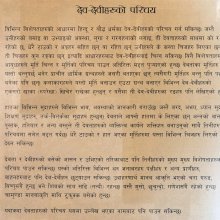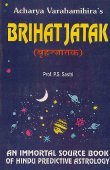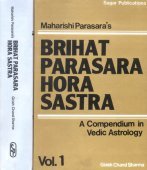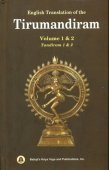Avastha, Avasthā: 23 definitions
Introduction:
Avastha means something in Hinduism, Sanskrit, Jainism, Prakrit, the history of ancient India, Marathi, Hindi. If you want to know the exact meaning, history, etymology or English translation of this term then check out the descriptions on this page. Add your comment or reference to a book if you want to contribute to this summary article.
Images (photo gallery)
In Hinduism
Natyashastra (theatrics and dramaturgy)
Source: Wisdom Library: Nāṭya-śāstraAvasthā (अवस्था) refers to the “five stages of the action” of a Hero’s striving towards the object in a dramatic playwright (nāṭaka), according to the Nāṭyaśāstra chapter 21. The fruits of these actions (phalayoga) relates to dharma (duty), kāma (enjoyment of pleasure) and artha (wealth).
These are the five stages of action (avasthā):
- prārambha (beginning),
- prayatna (effort),
- prāptisambhava (possibility of attainment),
- niyataprāpti (certainty of attainment),
- phalayoga or phalaprāpti (attainment of the object).
These five actions are connected with the five arthaprakṛti, or ‘elements of the plot’.

Natyashastra (नाट्यशास्त्र, nāṭyaśāstra) refers to both the ancient Indian tradition (shastra) of performing arts, (natya—theatrics, drama, dance, music), as well as the name of a Sanskrit work dealing with these subjects. It also teaches the rules for composing Dramatic plays (nataka), construction and performance of Theater, and Poetic works (kavya).
Vyakarana (Sanskrit grammar)
Source: Wikisource: A dictionary of Sanskrit grammarAvasthā (अवस्था).—Stage, condition; stage in the formation of a word; e. g. उप-देशावस्था, लावस्था (upa-deśāvasthā, lāvasthā), etc.

Vyakarana (व्याकरण, vyākaraṇa) refers to Sanskrit grammar and represents one of the six additional sciences (vedanga) to be studied along with the Vedas. Vyakarana concerns itself with the rules of Sanskrit grammar and linguistic analysis in order to establish the correct context of words and sentences.
Shaivism (Shaiva philosophy)
Source: Brill: Śaivism and the Tantric TraditionsAvasthā (अवस्था) or Pañcāvastha refers to the “five mystic states”, as cited in the Īśvarapratyabhijñāvimarśinī (KSTS vol. 65, 330).
They are:
- bliss (ānanda),
- ascent (udbhava),
- trembling (kampa),
- sleep (nidrā),
- whirling (ghūrṇi).
Note: Gnostic realization is here inseparably wedded to the pañcan-avasthā [pañcāvasthāḥ] or Five Mystic States that we see repeatedly in the Kaula scriptures. This emphasis on direct experience (āvirbhāvana) demonstrates that Abhinava’s understanding of the path of the jñānī is not one of intellectual or conceptual realization, but rather one of insights into the nature of reality so powerful that they spontaneously bring on psychophysical experiences.
Source: SOAS University of London: Protective Rites in the Netra TantraAvastha (अवस्थ) refers to “being situated” (in the ocean of the milky nectar of immortality), according to the Svacchanda-tantra.—Accordingly, [verse 7.216cd-217, while describing the meditation on the kālahaṃsa]—“After [this, the Yogin] visualizes the heart lotus, with sixteen petals, situated in the opening of the channel that pierces the tube [i.e., the lotus stem. He imagines] a white, radiant, completely full moon, endowed with sixteen parts, and with his body in the shape of a lotus pericarp. [Then, he pictures] the self, It is to be imagined [as seated] in the middle of that [moon], and is as spotless as pure crystal. [The self is] pervaded with amṛta, [which washes over him] in a wave from the ocean of the milky nectar of immortality (kṣīrāmṛtārṇava-avastha)”.

Shaiva (शैव, śaiva) or Shaivism (śaivism) represents a tradition of Hinduism worshiping Shiva as the supreme being. Closely related to Shaktism, Shaiva literature includes a range of scriptures, including Tantras, while the root of this tradition may be traced back to the ancient Vedas.
Yoga (school of philosophy)
Source: Brill: Śaivism and the Tantric Traditions (yoga)Avasthā (अवस्था) refers to four “states” or “stages” of yoga practice, according to the Amṛtasiddhi, a 12th-century text belonging to the Haṭhayoga textual tradition.—
There four avasthās, “states” or “stages” of yoga practice introduced in the Amṛtasiddhi (vivekas 19–33):
- ārambha,
- ghaṭa,
- paricaya,
- niṣpanna/niṣpatti.
These are taught in many Sanskrit haṭhayoga texts; they are also mentioned in the old Hindi Gorakhbāṇī (śabds 136–139).
Source: ORA: Amanaska (king of all yogas): A Critical Edition and Annotated Translation by Jason Birch1) Avasthā (अवस्था) refers to a “state (of mindlessness)”, according to the Parākhyatantra verse 2.60-61.—Accordingly: while discussing śiva’s transmental nature: “That power which leads the bound soul to the reality-level that is beyond the mind and devoid of support is taught to be the power Manonmanī that belongs to the god Manonmana. That which suddenly brings souls in this world to a state of mindlessness (unmana-avasthā) is taught in this [Tantra] to be [the power] Unmanī, who is in the control of [a Rudra called] Unmana”.
2) Avastha (अवस्थ) refers to “remaining in a state (of deep meditative sleep)”, according to verse 6.21.14 of the Mokṣopāya.—Accordingly, as Bhuśuṇḍa said to Vasiṣṭha: “[...] When [mount] Meru and the rest have dissolved into the world and become one ocean, then, having performed concentration on the wind element, I remain with my mind steady. Having attained the further shore of the universe in a pure state at the end of the elements, I remain because of the immovable state of my deep [meditative] sleep (suṣupta-avastha), until Brahmā is again intent upon the act of creation. Then, having entered the universe, I remain in the sky. [...]”.

Yoga is originally considered a branch of Hindu philosophy (astika), but both ancient and modern Yoga combine the physical, mental and spiritual. Yoga teaches various physical techniques also known as āsanas (postures), used for various purposes (eg., meditation, contemplation, relaxation).
Vastushastra (architecture)
Source: Brill: Śaivism and the Tantric Traditions (architecture)Avastha (अवस्थ) refers to “(being) situated” (e.g., ‘extraneous substance as situated beneath the site’) [?], according to the Devyāmata (in the section śalyoddhāra-paṭala or “excavation of extraneous substances”).—Accordingly, “[...] When the division of [the sites for] a house and a shrine with cords has been commenced, the wise man [i.e. the officiant] should notice an omen and observe it correctly. [The omens are] seeing [someone or something], announcing [a creature’s name], cries [of animals], and the actions of a donor. [The officiant] should carefully notice an extraneous substance as situated (avastha) beneath the site. [...]”.

Vastushastra (वास्तुशास्त्र, vāstuśāstra) refers to the ancient Indian science (shastra) of architecture (vastu), dealing with topics such architecture, sculpture, town-building, fort building and various other constructions. Vastu also deals with the philosophy of the architectural relation with the cosmic universe.
Shaktism (Shakta philosophy)
Source: Google Books: ManthanabhairavatantramAvasthā (अवस्था) refers to the “(twofold) state” (of Akula’s supreme bliss which arises within consciousness ?), according to the Kularatnapañcakāvatāra verse 1.10cd-15.—Accordingly, “The supreme (reality) attained by the teacher's Command is Akula that bestows worldly benefits and liberation. It is pure consciousness free of the impurity of Māyā. The omnipresent and tranquil Void—that is said to be Akula. Akula’s supreme bliss arises within consciousness. Its state, which is two-fold (avasthā—tasyāvasthā dvidhābhūtā), is (now) going to be explained. Listen. [...]”.

Shakta (शाक्त, śākta) or Shaktism (śāktism) represents a tradition of Hinduism where the Goddess (Devi) is revered and worshipped. Shakta literature includes a range of scriptures, including various Agamas and Tantras, although its roots may be traced back to the Vedas.
In Jainism
General definition (in Jainism)
Source: The University of Sydney: A study of the Twelve Reflections1) Avastha (अवस्थ) refers to “separation” [?], according to Pūjyapāda’s Sarvārthasiddhi.—Accordingly, “The bodies as well as the objects of pleasure of the senses are transient like bubbles. In the endless cycle of worldly existence, union and separation in the womb etc. (avastha—garbhādiṣu avasthāviśeṣeṣu) alternate in quick succession. However, the self under delusion considers the persons and objects associated with him as permanent. [...]”.
2) Avasthā (अवस्था) refers to the “state (of old age)”, according to the 11th century Jñānārṇava, a treatise on Jain Yoga in roughly 2200 Sanskrit verses composed by Śubhacandra.—Accordingly, “You must understand that the body is overcome by disease, youth is overcome by old age [com.—vṛddha-avasthā-vyāpta—‘accompanied by the aged state’], vitality is oppressed by decay and life is oppressed by death”.

Jainism is an Indian religion of Dharma whose doctrine revolves around harmlessness (ahimsa) towards every living being. The two major branches (Digambara and Svetambara) of Jainism stimulate self-control (or, shramana, ‘self-reliance’) and spiritual development through a path of peace for the soul to progess to the ultimate goal.
India history and geography
Source: Cologne Digital Sanskrit Dictionaries: Indian Epigraphical GlossaryAvasthā.—(IA 16), a territorial unit. Note: avasthā is defined in the “Indian epigraphical glossary” as it can be found on ancient inscriptions commonly written in Sanskrit, Prakrit or Dravidian languages.

The history of India traces the identification of countries, villages, towns and other regions of India, as well as mythology, zoology, royal dynasties, rulers, tribes, local festivities and traditions and regional languages. Ancient India enjoyed religious freedom and encourages the path of Dharma, a concept common to Buddhism, Hinduism, and Jainism.
Languages of India and abroad
Marathi-English dictionary
Source: DDSA: The Molesworth Marathi and English Dictionaryavastha (अवस्थ).—ad (avastu S) Suddenly, unexpectedly, unawares. 2 (avastāt S At last or finally.) Altogether, utterly, wholly, at all. Neg. con. Ex. hā majaśīṃ a0 bōlalā nāhīṃ. The power and the popular apprehension of the words through this invariable neg. con. is, Not even by accident; not by any chance or hap; never at all.
--- OR ---
avasthā (अवस्था).—f (S) State or condition.
Source: DDSA: The Aryabhusan school dictionary, Marathi-Englishavasthā (अवस्था).—f State, condition. Stage of life, as in tārūṇyāvasthā.
Marathi is an Indo-European language having over 70 million native speakers people in (predominantly) Maharashtra India. Marathi, like many other Indo-Aryan languages, evolved from early forms of Prakrit, which itself is a subset of Sanskrit, one of the most ancient languages of the world.
Sanskrit dictionary
Source: DDSA: The practical Sanskrit-English dictionaryAvasthā (अवस्था).—1 A.
1) To remain, stay, abide; तेन सह सुखमवतिष्ठन्ते (tena saha sukhamavatiṣṭhante) K.18; oft. with an adj.; विलोकयन्ती तावदवतस्थे (vilokayantī tāvadavatasthe) 25; पादौ विष्टभ्य (pādau viṣṭabhya); क्षणं भद्रावतिष्ठस्व (kṣaṇaṃ bhadrāvatiṣṭhasva) Bhaṭṭikāvya 8.11 stay, wait; अनीत्वा पङ्कतां धूलिमुदकं नावतिष्ठते (anītvā paṅkatāṃ dhūlimudakaṃ nāvatiṣṭhate) Śiśupālavadha 2.34.
2) To abide by, conform to, obey; न शासनेऽवास्थित यो गुरूणाम् (na śāsane'vāsthita yo gurūṇām) Bhaṭṭikāvya 3.14.
3) To live; क्षणमप्यवतिष्ठते श्वसन् यदि जन्तुर्ननु लाभवानसौ (kṣaṇamapyavatiṣṭhate śvasan yadi janturnanu lābhavānasau) R.8. 87.
4) To stand (still), make a halt, stop; न च शक्नो- म्यवस्थातुम् (na ca śakno- myavasthātum) Bhagavadgītā (Bombay) 1.3,14.23; R.2.31, Kumārasambhava 3.42, Śiśupālavadha 9. 83.
5) To stand, exist, chance to be.
6) To fall to, devolve on.
7) To enter; reach, attain to.
8) To stand apart, go off, withdraw.
9) to descend; go to.
1) To place (Ved.) -Caus. (sthāpayati-te)
1) To cause to stand or stop, station, keep, place; पश्चादवस्थापितवाहिनीकः (paścādavasthāpitavāhinīkaḥ) R.13. 66; स्कन्धावारमवस्थाप्य (skandhāvāramavasthāpya) Daśakumāracarita 174 having encamped; भिक्षापात्रं नागदन्तकेऽवस्थाप्य (bhikṣāpātraṃ nāgadantake'vasthāpya) H.1,3.
2) To fix, settle; शक्योऽवस्था- पयितुम् (śakyo'vasthā- payitum) Mu.1.
3) To establish, found; द्वैराज्यमवस्थापयि- तुकामोऽस्मि (dvairājyamavasthāpayi- tukāmo'smi) M.5.
4) To compose, collect, steady, fix (as heart &c.); न शक्नोमि हृदयमवस्थापयितुम् (na śaknomi hṛdayamavasthāpayitum) Uttararāmacarita 4.
5) To comfort, console; ततो निर्याय कौरव्य अवस्थाप्य च तद्बलम् (tato niryāya kauravya avasthāpya ca tadbalam) Mahābhārata (Bombay) 3.16.29.
6) To separate, divide.
--- OR ---
Avastha (अवस्थ).—The membrum virile; अवस्थस्य क्नदीवतः (avasthasya knadīvataḥ) Av.7.9.3.
-sthā [ava-sthā-aṅ]
1) State, condition, situation; स्वामिनो महत्यवस्था वर्तते (svāmino mahatyavasthā vartate) Pañcatantra (Bombay) 1 a critical state, distress; तदनु कथयेर्माधवीयावमस्थाम् (tadanu kathayermādhavīyāvamasthām) Mālatīmādhava (Bombay) 9.26; तुल्यावस्थः स्वसुः कृतः (tulyāvasthaḥ svasuḥ kṛtaḥ) R.12.8; तां तामवस्थां प्रतिपद्यमानम् (tāṃ tāmavasthāṃ pratipadyamānam) 13.5; ईदृशीमवस्थां प्रपन्नोऽस्मि (īdṛśīmavasthāṃ prapanno'smi) Ś.5; Kumārasambhava 2.6; सर्व° (sarva°) Meghadūta 11; अवस्था खलु नाम शत्रुमपि मित्रत्वे कल्पयति (avasthā khalu nāma śatrumapi mitratve kalpayati) Pratijñā.1. oft. in comp.; तदवस्थः (tadavasthaḥ) Pañcatantra (Bombay) 5. reduced to that state; एतद°, बालावस्थः अधिपतिः (etada°, bālāvasthaḥ adhipatiḥ) V.5; अन्त्यावस्था (antyāvasthā) Pañcatantra (Bombay) 4; so कामयमानावस्थो राजा (kāmayamānāvastho rājā) Ś.3; स्फुलिङ्गावस्थया वह्निः (sphuliṅgāvasthayā vahniḥ) 7.15; अन्तर्मदावस्थो द्विपेन्द्रः (antarmadāvastho dvipendraḥ) R.2.7 rutting state.
2) Position, circumstance.
3) Period, stage (of life &c.); यौवन° (yauvana°); वयोवस्थां तस्याः शृणुत (vayovasthāṃ tasyāḥ śṛṇuta) Mālatīmādhava (Bombay) 9.29.
4) Form, appearance.
5) Degree, proportion.
6) Stability, fixity, as in अनवस्थ (anavastha) q. v.
7) Appearance in a court of law; कृतावस्थो धनैषिणा (kṛtāvastho dhanaiṣiṇā) Manusmṛti 8.6.
8) The female organ of generation.
Derivable forms: avasthaḥ (अवस्थः).
Source: Cologne Digital Sanskrit Dictionaries: Shabda-Sagara Sanskrit-English DictionaryAvasthā (अवस्था).—f.
(-sthā) State, condition, situation, circumstance of age or position. E. ava, sthā to stand or stay, aṅ and ṭāp affs.
Source: Cologne Digital Sanskrit Dictionaries: Benfey Sanskrit-English DictionaryAvasthā (अवस्था).—[ava-sthā], f. 1. State, [Pañcatantra] 44, 1. 2. Condition, [Rāmāyaṇa] 3, 44, 13.
Source: Cologne Digital Sanskrit Dictionaries: Cappeller Sanskrit-English DictionaryAvastha (अवस्थ).—[masculine] membrum virile. [feminine] ā (often adj. —°) state, condition, situation, circumstance, appearance in court; vulva.
--- OR ---
Avasthā (अवस्था).—[Middle] (A.) stand off, withdraw; be deprived of, miss ([ablative]); go down, descend; enter, come to ([accusative] or [locative]); fall to one’s ([dative]) share; stop, stand still; abide or remain in ([locative]); continue doing or being ([gerund], [nominative], or [instrumental]); exist, be present; begin, undertake, determine. [Causative] cause to stand, stop, restrain; let stand, leave behind; put, place, lay etc. in or on ([locative]); establish, fix, settle; strengthen, comfort.
Avasthā is a Sanskrit compound consisting of the terms ava and sthā (स्था).
Source: Cologne Digital Sanskrit Dictionaries: Monier-Williams Sanskrit-English Dictionary1) Avasthā (अवस्था):—[=ava-√sthā] a [Parasmaipada] -tiṣṭhati ([imperfect tense] -atiṣṭhat; [Aorist] [subjunctive] -sthāt; perf. [Ātmanepada] 3. sg. -tasthe; perf. p. [Parasmaipada] -tasthivas)
—to go down into ([accusative]), reach down to ([accusative]), [Ṛg-veda; Śatapatha-brāhmaṇa];
— ([Aorist] [subjunctive] 2. [plural] -sthāta), to go away from ([ablative]), [Ṛg-veda v, 53, 8];
— ([Aorist] [subjunctive] 1. sg. -sthām) to be separated from or deprived of ([ablative]), [Ṛg-veda ii, 27, 17] : [Ātmanepada] ([Pāṇini 1-3, 22]; rarely [Parasmaipada] e.g. [Bhagavad-gītā xiv, 23; Bhāgavata-purāṇa] etc.)
—to take one’s stand, remain standing, [Āśvalāyana-gṛhya-sūtra] etc.;
—to stay, abide, stop at any place ([locative case]), [Mahābhārata] etc.;
—to abide in a state or condition ([instrumental case]), [Mahābhārata i, 5080; Bhāgavata-purāṇa] etc.;
— (with [indeclinable participle]) to remain or continue (doing anything), [Mahābhārata i, 5770; iii, 187 ([edition] [Bombay edition])], etc.;
—to be found, exist, be present, [Mahābhārata; Yājñavalkya i, 272, etc.];
— (perf. 1. sg. -tasthe) to fall to, fall into the possession of ([dative case]), [Ṛg-veda x, 48, 5];
—to enter, be absorbed in in ([locative case]), [Manu-smṛti vi, 81] ;
—to penetrate (as sound or as fame), [Mahābhārata xiii, 1 845] :
—[Passive voice] -sthīyate, to be settled or fixed or chosen, [Śakuntalā] :
—[Causal] (generally [indeclinable participle] -sthāpya) to cause to stand or stop (as a carriage or an army etc.), let behind, [Mahābhārata] etc.;
—to place upon ([locative case]), fix, set, array, [Āśvalāyana-gṛhya-sūtra] etc.;
—to cause to enter or be absorbed in ([locative case]), [Mahābhārata iii, 12502];
—to render solid or firm, [Rāmāyaṇa v, 35, 36];
—to establish (by arguments) [commentator or commentary] on [Nyāya] :
—[Passive voice] [Causal] -sthāpyate, to be kept firm [‘to be separated’ [Brāhmaṇa]] [Bhāgavata-purāṇa]
2) Avastha (अवस्थ):—[=ava-stha] [from ava-sthā] m. membrum virile, [Atharva-veda vii, 90, 3] (cf. upa-stha)
3) Avasthā (अवस्था):—[=ava-sthā] [from ava-stha] b f. appearance (in a court of justice), [Manu-smṛti viii, 6o]
4) [v.s. ...] ‘stability, consistence’ cf. anavastha
5) [v.s. ...] state, condition, situation (five are distinguished in dramas, [Sāhitya-darpaṇa]), circumstance of age ([Pāṇini v,4, 146; vi, 2, i 15, etc.]) or position, stage, degree
6) [v.s. ...] f. [plural] the female organs of generation, [Ṛg-veda v, 19, 1.]
Source: Cologne Digital Sanskrit Dictionaries: Yates Sanskrit-English DictionaryAvasthā (अवस्था):—[ava-sthā] (sthā) 1. f. State, condition.
Source: DDSA: Paia-sadda-mahannavo; a comprehensive Prakrit Hindi dictionary (S)Avasthā (अवस्था) in the Sanskrit language is related to the Prakrit word: Avasthā.
[Sanskrit to German]
Sanskrit, also spelled संस्कृतम् (saṃskṛtam), is an ancient language of India commonly seen as the grandmother of the Indo-European language family (even English!). Closely allied with Prakrit and Pali, Sanskrit is more exhaustive in both grammar and terms and has the most extensive collection of literature in the world, greatly surpassing its sister-languages Greek and Latin.
Hindi dictionary
Source: DDSA: A practical Hindi-English dictionaryAvasthā (अवस्था):—(nf) condition, state; age; stage; phase, despondency.
...
Prakrit-English dictionary
Source: DDSA: Paia-sadda-mahannavo; a comprehensive Prakrit Hindi dictionaryAvasthā (अवस्था) in the Prakrit language is related to the Sanskrit word: Avasthā.
Prakrit is an ancient language closely associated with both Pali and Sanskrit. Jain literature is often composed in this language or sub-dialects, such as the Agamas and their commentaries which are written in Ardhamagadhi and Maharashtri Prakrit. The earliest extant texts can be dated to as early as the 4th century BCE although core portions might be older.
See also (Relevant definitions)
Starts with (+12): Avastai, Avastai-nanasnanam, Avastaippucutal, Avastattirayam, Avasthabedha, Avasthabheda, Avasthacatushtaya, Avasthachatushtaya, Avasthadashaka, Avasthadhara, Avasthadvaya, Avastham, Avasthan, Avasthana, Avasthaniyama, Avasthantara, Avasthapa, Avasthapaka, Avasthapana, Avasthapita.
Ends with (+136): Adyavastha, Anavastha, Antarmadavastha, Antarvyavastha, Antyavastha, Anubhavastha, Anvavastha, Apavyavastha, Arthavyavastha, Ashaucavyavastha, Ashtavidhaprakrityavastha, Atmavastha, Atyavastha, Aupavastha, Avyavastha, Bahudaliya-vyavastha, Bajaravyavastha, Balavastha, Balyavastha, Bhagavatavyavastha.
Full-text (+158): Avasthadvaya, Avasthacatushtaya, Avasthavan, Svapnavastha, Kritavastha, Anavastha, Duravastha, Avasthatraya, Paryavastha, Samavastha, Tadavastha, Pancavastha, Avasthapana, Avasthiti, Balavastha, Paryyavastha, Evamavastha, Yathavastham, Triyavastha, Avasthika.
Relevant text
Search found 55 books and stories containing Avastha, Ava-stha, Ava-sthā, Avasthā, Avasthaa; (plurals include: Avasthas, sthas, sthās, Avasthās, Avasthaas). You can also click to the full overview containing English textual excerpts. Below are direct links for the most relevant articles:
Rig Veda (translation and commentary) (by H. H. Wilson)
Gati in Theory and Practice (by Dr. Sujatha Mohan)
Gati in Kāma-avasthās < [Chapter 3 - Application of gati in Dṛśya-kāvyas]
Gati in classical form of Bharatanāṭya < [Chapter 4 - Practice of Gati]
An analysis of the chapters in Nāṭyaśāstra < [Chapter 1 - Nāṭya]
Sivaprakasam (Study in Bondage and Liberation) (by N. Veerappan)
Karya Avasthas < [Chapter 3 - Understanding the Self]
Shuddha Avastha < [Chapter 3 - Understanding the Self]
Anavamala is non-destructable < [Chapter 7 - Liberation]
Thirty minor Upanishads (by K. Narayanasvami Aiyar)
Paingala Upanishad of Shukla-Yajurveda, Chapter II
Narada Parivrajaka Upanishad of Atharvaveda, Chapter VI
Dasarupaka (critical study) (by Anuru Ranjan Mishra)
Part 11 - The five stages of action (avasthā) < [Chapter 1 - Nāṭaka (critical study)]
Part 3-6 - Nāṭaka rules < [Chapter 1 - Nāṭaka (critical study)]
Introduction to the Īhāmṛga type of Drama < [Chapter 9 - Īhāmṛga (critical study)]
Bhakti-rasamrta-sindhu (by Śrīla Rūpa Gosvāmī)
Verse 2.1.11 < [Part 1 - Ecstatic Excitants (vibhāva)]
Verse 2.4.82 < [Part 4 - Transient Ecstatic Disturbances (vyābhicāri-bhāva)]
Verse 1.2.242 < [Part 2 - Devotional Service in Practice (sādhana-bhakti)]
Related products






